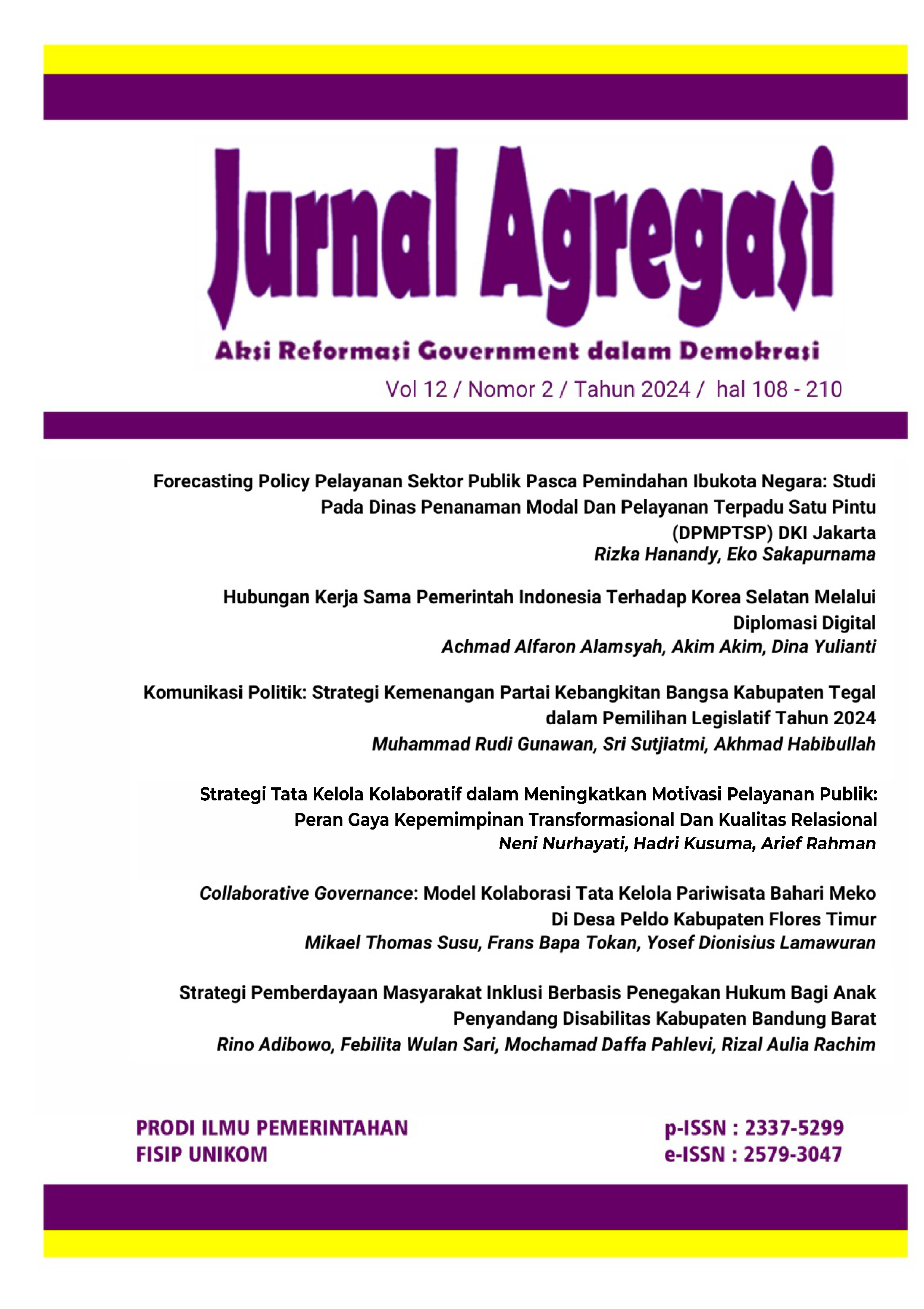Strategi Tata Kelola Kolaboratif Dalam Meningkatkan Motivasi Pelayanan Publik: Peran Gaya Kepemimpinan Transformasional Dan Kualitas Relasional.
DOI:
https://doi.org/10.34010/agregasi.v12i2.14017Keywords:
tatakelola kolaboratif, motivasi pelayanan publik, kepemimpinan transformasional, kualitas relasionalAbstract
The main objective of this study is to analyze theoretical models to develop empirical research models on factors that influence collaborative governance and public service motivation. The analysis method uses SEM PLS with 367 respondents. All questions related to research data have been tested for validity and reliability and have met the common method bias and nonresponse bias tests. The analysis presented consists of three parts, namely analysis of research respondents, descriptive analysis of research data and PLS analysis. The results show that transformational leadership style and relational quality have a significant effect on collaborative governance. Collaborative governance also affects public service motivation, with transformational leadership style and relational quality playing an important role. The practical implications of this study are the emphasis on collaborative governance in the public sector with the importance of strong transformational leadership style and relational quality so that public service motivation can run optimally through effective and sustainable collaborative governance.
Keywords: collaborative governance, public service motivation, transformational leadership, relational quality
Downloads
Downloads
Published
Issue
Section
License
This work is licensed under :

Creative Commons Attribution-NonCommercial 4.0 International License









